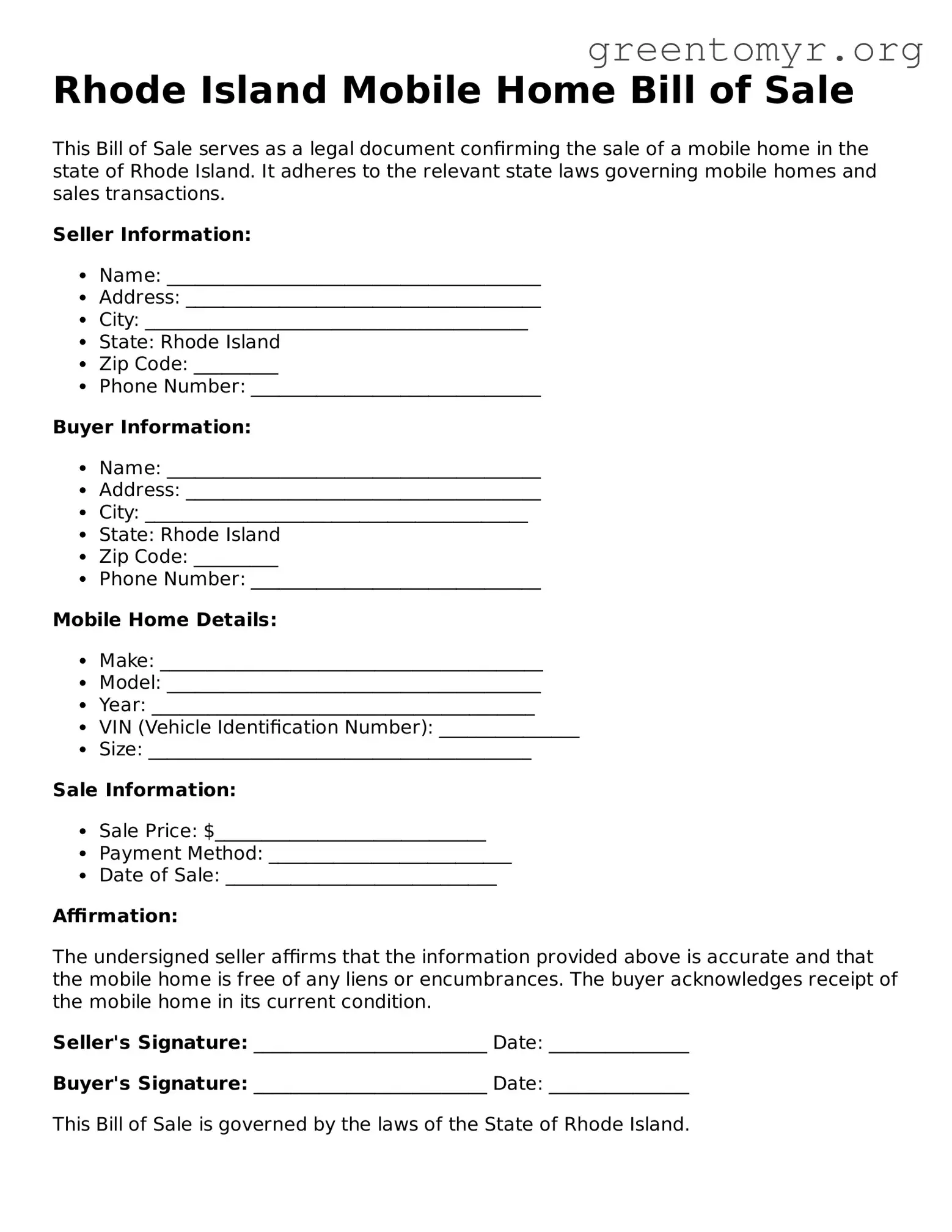Filling out the Rhode Island Mobile Home Bill of Sale form can seem straightforward, but many people make common mistakes that can complicate the process. One of the first errors occurs when individuals fail to provide accurate information about the mobile home. This includes details such as the serial number, make, model, and year. If any of this crucial information is incorrect or missing, it can create issues down the line, especially concerning ownership verification.
Another frequent mistake is neglecting to obtain signatures from both the buyer and seller. Both parties must sign the document to ensure that the sale is legally binding. Without these signatures, there is no official record of the transaction, which can lead to challenges regarding ownership later.
Additionally, people sometimes overlook the importance of including the sale price in the Bill of Sale. This amount not only reflects the cost of the transaction but is also essential for tax purposes. Without clear documentation of the sale price, the state may face difficulties in assessing applicable taxes, resulting in potential fines or penalties for both parties.
Many also fail to provide the current address of both the buyer and seller. This information is vital for registration and any future correspondence. Inaccurate or incomplete addresses can lead to confusion and complications, especially if there are any disputes regarding the sale.
Another mistake involves the date of the sale. Some people either forget to include it or write a date that is not consistent with when the transaction actually took place. Accuracy in dating the transaction is crucial, as it can impact legal standing and affect various timelines associated with mobile home registration.
Sometimes, buyers and sellers do not keep a copy of the signed Bill of Sale. Retaining a copy is important for both parties, as it serves as proof of the transaction and can be essential if any issues arise in the future. Anyone involved in the sale should prioritize keeping detailed records.
Furthermore, individuals may not fully understand the implications of transferring ownership. Failing to discuss and clarify the responsibilities related to the mobile home after the sale can lead to misunderstandings or disputes. It is always best to ensure that both parties are on the same page when finalizing details.
Finally, many neglect to check for any local regulations or requirements regarding the sale of mobile homes. Each municipality may have specific rules that must be followed, and overlooking these can lead to additional hassles or fines. Conducting a bit of research prior to completing the Bill of Sale can save both parties a lot of time and effort in the long run.
